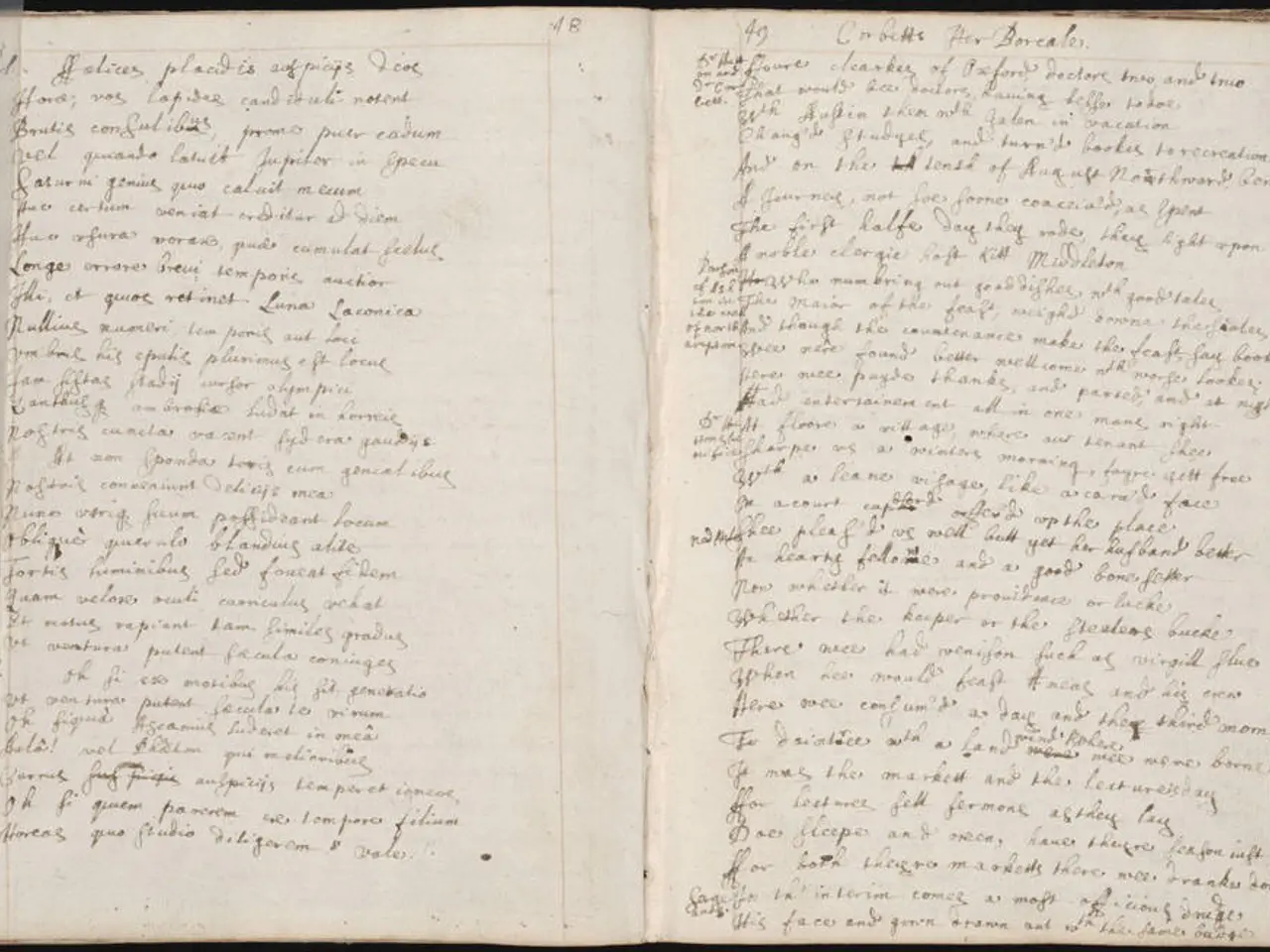digital books are revolutionizing the means of reading and writing
In the digital age, the rise of eBooks has significantly altered the way we consume literature, as reported by linguist Naomi Baron and further explored by journalist Paul Mason in an article published in The Guardian on August 10, 2015. The article was contributed by Jillian Casey at The Blooming Twig, an independent publishing house that supports the adventurous tastes of its readership.
The convenience and accessibility of eBooks, particularly for commuters and tech-savvy readers, have encouraged higher consumption rates, especially in genres like romance and mystery, where loyal and frequent readers often purchase multiple titles monthly. This shift towards digital reading has also made the market more price-sensitive, with eBook buyers often responding well to promotional pricing strategies that greatly increase downloads compared to print buyers.
The abundance of eBooks has lowered barriers to entry, allowing more authors to self-publish digitally without traditional gatekeeping. While this democratization enables a diverse range of voices and faster publication cycles, it also means authors face more competition to stand out due to the sheer volume of eBooks available. Publishers and authors must now navigate fragmented markets, evolving pricing models, and new promotional tactics tailored for digital platforms.
The shift towards digital reading has not been without criticism in the literary world. Academics and authors worry about the loss of immersiveness in digital reading, as digital people have multiple selves and their engagement with immersive stories is more provisional and temporary. This has led to concerns about the devaluation of writing as a piece of art.
Paul Mason, in the same article for The Guardian, discusses how the way novelists write has changed due to the rise of digital reading. He categorizes three kinds of writing that have emerged in the digital age: popular novels with a high degree of writerly craft, literary writing about reality, and confessional autobiographies, diaries, and reportage about legendary events.
Mason notes that authors now compete for readers' attention with video games, movies, and social media. He states that life itself has become more immersive, which is what writers are really up against. Despite this, the world of physical books is not entirely dying, as evidenced by Jillian Casey's well-worn copy of Jane Austen's "Pride and Prejudice" that often opens to the page where Elizabeth Bennet refuses Mr. Darcy's first proposal.
The rise of digital reading has changed the way people interact with their favorite stories, even though their copies of books may now live on a Kindle instead of a bookshelf. Young people, in particular, read on their cellphones, dipping into books in coffee lines or on public transportation, but then checking their work email or online love life, a swipe away. This multitasking nature of digital reading has led to shorter attention spans, not just because the text is digital, but because readers are often engaging with their devices for multiple purposes.
In the past, when a person picked up a book, they dedicated their entire self to the story - the vivid characters, the rich setting, and the intricate background story. While this immersive experience is still possible with eBooks, the convenience and accessibility have changed the way we read, and in turn, the way authors write. The digital age has presented new challenges and opportunities for both readers and writers, shaping the literary landscape in unprecedented ways.
[1] "The Rise of eBooks: Impact on Reading Patterns and Novel Writing." The Blooming Twig, 10 Aug. 2015, https://www.thebloomingtwig.com/the-rise-of-ebooks-impact-on-reading-patterns-and-novel-writing/ [3] "The Impact of eBooks on the Publishing Industry." The Publishing Digest, 15 Mar. 2016, https://www.thepublishingdigest.com/impact-ebooks-publishing-industry/
- The growing popularity of eBooks in education-and-self-development, lifestyle, and entertainment sectors has broadened the reach of literature, enabling easier access for a wider audience.
- As technology plays a more significant role in our daily lives, the boundaries between reading, learning, and self-improvement blur, further emphasizing the importance of adapting traditional literature to the digital age.




